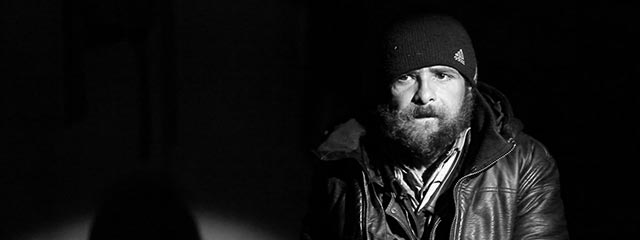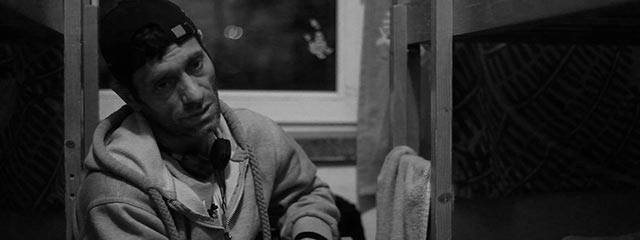Uncle Sandu is 60 years old and he has been living in the street for four years, since he could not afford to pay his "duties" for the one-room flat he lived in, in the neighborhood of Pajura. In one week he gathered his things, now packed in a few shopping bags, and left. He did not leave the neighborhood, though; Uncle Sandu is a known figure among the people who live here, they recognize him from a distance, first of all due to the bags he always carries with him. As he lives in the street and is exposed to dangers, uncle Sandu chose to stay in the place he knew best – he has lived in Pajura for over 10 years and he perceives this space as safe, it's a place where the degree of unpredictability is low and here he can rely on a frail social network that was already in place – acquaintances, former neighbors.
"I also had the spare clothes, you know, and I had nowhere to put my winter clothes, that was the problem. Cause I didn't find someone, I mean that cousin of mine was not home and I put all my clothes, my winter coat, my jacket and other thick clothes in that sack and in the bag, you know".
Half of the bags he carries are full with spare summer clothes. He keeps the winter clothes in separate bags and leaves them with a lady in the neighborhood, who helps him all year long. He still keeps the family album with his parents, from his youth: "[They] kind of are my memories and I also have some little old icons that I cannot separate from, three old icons that belonged to my parents, which had been in our house for dozens of years. The icons, the album and some books, novels". The main danger that lurks in the street – Uncle Sandu says – is losing possession of his things. Sometimes even the rats attack them and he gives them stale bread, in order to distract them from the suitcase, which they might gnaw.
He is not married, he doesn't have children, either, and when he was younger he used to work in a textile company, in the quality control department. He still has some living relatives, in his native village, somewhere in Oltenia. He does not resort to them, though; only sometimes in winter, when it's unbearably cold, he goes to a cousin in Bucharest, asking him to host him for a few weeks (if he finds him home). As for the rest of the time, each winter night he tries to find a block hall to stay in, where he wouldn't freeze. His thick clothes are a must, as is his winter coat.
"[She] let me in while those heaters were there, I stayed at the ground floor, in a hall, you know, in a block [in Pajura]. She gave me a little chair and I sat near the heater, but in order for me not to cause trouble in the morning, she said: "when you leave the chair at my door, you just leave it and go, cause the cleaning lady will come and throw you out, she'll say you made a mess or something, although you didn't do anything, you only sat on the chair, but the cleaning lady will come, and other people, too". The super may come and throw you out."
Some of his former neighbors have turned into support people for Uncle Sandu. On holidays he receives packages, sometimes some spare clothes, and some of the neighbors open the door of the block to let him sleep in the hall. In winter, in frost, in the snow, when it's even harder for him to carry his bags around, he asks the lady who lets him in to sleep in the hall to keep his bags for a while.
"I get on the bus and I leave for Piaţa Romană or Piaţa Matache, you know, and I used to leave them with her. In the evening, when I returned, she opened the door and gave me the coat or the scarf. I had mine, but they were too few, they didn't keep me warm".
The food is scarce and season-based. He manages well in the summer, given that he does not have a good appetite. He buys some pretzels, doughnuts, "merdenele" (cheese pastry) – and that's the meal. In winter it's harder. Sometimes people in the neighborhood make him a hot tea. "I used to go to McDonald's somewhere, to get an 8- or 10 lei menu, with fries, a hot meal".
Redactare: Ciprian Voicilă, Natalia Negru










